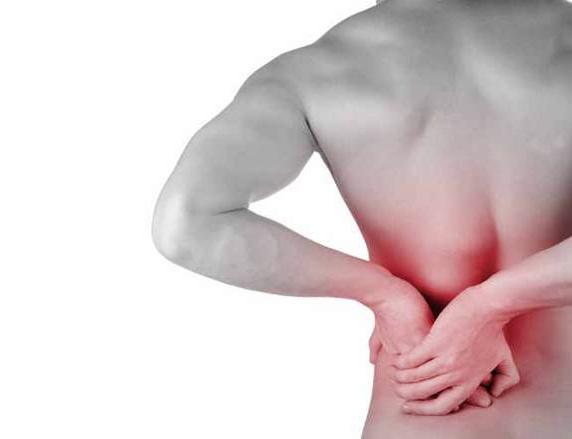Abdominal cramping is something that many of us have dealt with. You’ve had a big, rich, heavy meal, you’ve been not taking care of your intake over a period of indulgent celebration or you’ve been doing some self administration of pain medications and haven’t been aware of your diet. Cramping and bloating seems such a generic complaint that often we may dismiss simple things as indigestion, or a meal that ‘may not have been right’ from the dodgy street vendor at a music festival. But when is abdominal cramping something more that we should be worried about? There may be many different causes of concern for abdominal and intestinal pain but we shouldn’t dismiss or disregard what our ‘guts may be telling us’.
DIVERTICULOSIS is the formation of pouches inside the large intestine (diverticula). The pressure inside the intestine makes these pouches bulge out which results in the condition Diverticulosis. Irritable foodstuffs and issues with diet can contribute to the formation of pouches that sit inside the lining of the large intestine. Now many people can have diverticulosis and not have any presenting symptoms. DIVERTICULITIS is the more painful condition where these pouches become inflamed or infected and create painful abdominal irritation. The formation of Diverticula in the intestine tends to affect those over the age of 60, it is worth considering what our current habits may be doing to our system in our younger years so that when we begin to head towards our more senior years, we are well aware of what it is that can influence our health and more specifically our intestinal health later into life.
But what causes these pouches to become inflammed? There are varying theories and unfortunately these are still theories and there is still a consensus to be reached as to why diverticula progress through to the inflammatory diverticulitis. There are a number of causes that range from ingestion of foodstuffs, to ingestion of mediations and just plain irritation from not eating the right combinations of foods that contribute to this condition. It is wise to be aware of the influences and perhaps look at some of the claims in a more succinct fashion.
A recent medical journal in Harvard University in January 2017 suggested that unprocessed red meat (such as steak) can be a contributing factor to the development of diverticulosis. Researchers assert that c-reactive proteins and ferritin (blood cell protein that contains iron) are more prominent in a red meat heavy diet and that these elements can create irritation in the intestine which leads to increase risk of diverticulosis. There is also a theory that red meat consumption increases the levels of bacteria present in the gut which can influence the integrity of the gut lining and leads to the formation of the pouches.
Knowing that we have to eat enough fibre has long been a stalwart of dietitions in the contemporary era.. When it comes to irritation and diverticulosis, there is a myth that fibre plays an influential role in the development of the disease. However, when a flare of diverticulosis turns into diverticulitis fibre is definetly not going to be your friend. Fibre adds bulk to stools which stimulates peristalsis (muscular contractions) and colon contractions to move stools through the intestine. When you are in a ‘flare up’ of the condition this can create irritation and pain in the intestine and would be contrary to your condition at this time. Conversely fibre also helps to soften stools in the system and makes them less irritable to the intestine when the system is not in flare. So it may seem contrary that when you are experiencing a flare of the diverticula that you avoid fibre whereas to prevent it from occuring, you are encouraged to be fibre rich. This can cause some confusion for sufferers and should be discussed with your medical practitioner.
Whilst medical Research has not found any conclusive links between fibre and the onset of diverticulitis, as well as with certain foods such as red meat. the contemporary modern diet could have much more of a role in the onset. More people seem to be suffering from this condition now in the contemporary era and research currently suggests it is the over reliance on processed foods and particularly carbohydrates that is contributing to the increase. It is asserted that the “a diet that limits foods that are high in FODMAPs — fermentable oligosaccharides, disaccharides, monosaccharides, and polyols — can benefit people with irritable bowel syndrome. With these factors present in many of our processed foodstuffs it is not hard to make the leap between an increase in this condition and our over reliance on processed foods inside our dietary regimen.
The administration of NSAID’s and analgesics can also contribute to intestinal issues that may contribute to diverticulitis. It is known and documented that the ingestion of these medications creates issues with intestinal bleeding and influences the integrity of intestinal walls. Gastroenterologists from Universities and Medical Research Institutes in May 2011 in Washington and Boston cite the use of NSAID’s as a leading influence in the formation of diverticula and diverticulitis in both the upper and lower gastrointestinal tract. Subjects administering 2 tablets a day of aspirin were known to have consistent links with gastrointestinal bleeding and complications of intestinal walls due to the nature of the NSAID’s effect on intestinal integrity.
SO what to eat and what to avoid with this condition. There are some myths expoused and suggestions that certain foodstuffs contribute to this condition. We’ve talked about red meat. We’ve talked about additives in processed foods Avoiding small nuts and seeds is also said to be of benefit as these small items have been identified to create a flare of diverticulitis. Even tomoatoes can be an irritant it is suggested. Unfortunately the science doesn’t necessarily support these claims and cites them more as influences rather than definitive causes. Many medical professionals cite that each individual case needs to be addressed with care and consideration to the particulars of what is presenting. In essence, that what works for one may not work for all.
So whilst we may not have to be too concerned with the onset of diverticulitis or the irritation that comes with the formation of diverticula in our stomach now, as we get on in years it can be a consideration that we need to understand, particularly if we have been predisposed to elements such as heavy red meat diet, overuse of analgesics or even just in the unlucky percentage of sensitive gastro-intestinal issues. Being aware means understanding the warning signs and if abdominal cramping or pain in the andomen is present, best not o just put it down to a dodgy kebab or take out.



